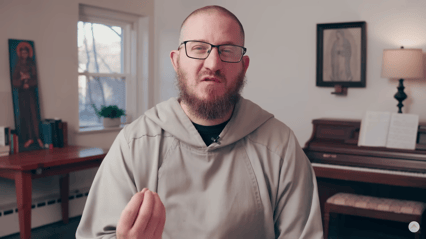Hope. I thought I knew what the word meant. And I’ve practiced that “hope,” or what I thought hope was, since childhood:
“I hope I get an American Girl Doll for Christmas,” “I hope I’m not late to school,” “I hope I can find someone else in class who loved ‘The Magician’s Nephew’ as much as I did…”
To me, hope meant positive thinking that a desired outcome may come to pass.
In adulthood, my hopes continue in the same vein: “I hope I can find some good sales at the grocery store this week,” “I hope my brother is able to visit as planned,” “I hope my family can make it through this tough time…”
During the last few years, my infant son became chronically ill. Sleep-deprived, sorrowful, and watching his illness steal away a carefree childhood, I found myself hoping—more than ever before—for health.
But when the illness dragged on day after day, month after month, it became clear: hoping “for” is not what hope is all about. At any rate, it’s not enough to keep me going.
It is easy—so very easy—to hope for things. I can hope for health, food, toys, or security all day long. It’s no virtue; it’s just human.
In fact, hoping “for” can actually detract from the day-to-day joy of living. When I hope “for” something so intensely, I can tell myself “I’ll be happy when” I get the hoped-for thing. I no longer live in the present, and my circumstances fail to please. Too much hoping “for” erases gratitude for what I have.
At life’s low points, hoping “for” causes distress. When I face my son’s illness, what keeps me going is hoping “in.”
During Advent, when we wait with joyful expectation, when we hope, we’re not simply hoping for the birth of Christ. After all, that’s history. It happened already. Neither do we simply hope for Heaven. Sure, it’s a great thing to do, but it’s not what we mean by “hope.”
God became man. He suffered, died, and rose from the dead for our sake. He opened the gates of Heaven. We may be with him for eternity. But the point of all this, as we learn, is love. “The greatest of these is love” (1 Corinthians 13:13).
If we believe that God exists, that he is good, and that he loves us, then we can know that he will use all things for good. He has a plan for our lives. Even our worst suffering has a great and joyful purpose. That is hope. We hope “in” his love for us. We hope “in” his strength to use our suffering — and to use my family’s ill health — for good, even if that good has not revealed itself yet.
Christmas is joyful not because it’s a day that a little girl might get an American Girl doll, but because God has given us reason to hope “in” him by historical fact. Candles and twinkling lights are appropriate not because they’re pretty decor but because without hope in God’s creative goodness and care for our individual lives, life—at times—can be bleak, utterly dark.
Hope in God is light in the darkness. It twinkles, it shines, it gives us just enough to keep on another day. And when we’re through the worst times, we can look back and celebrate because he triumphed in our souls by hope.
Go ahead and hope for things; it’s not bad. But that kind of hope is passing and can disappoint if the desired outcome is deferred.
True hope “hopes in.” This is the hope that endures and matters. This is the hope that foils the Grinch and leads us to proclaim like the psalmist, “Hope in God, for I shall again praise Him, my help and my God” (Psalm 42:5-6).




